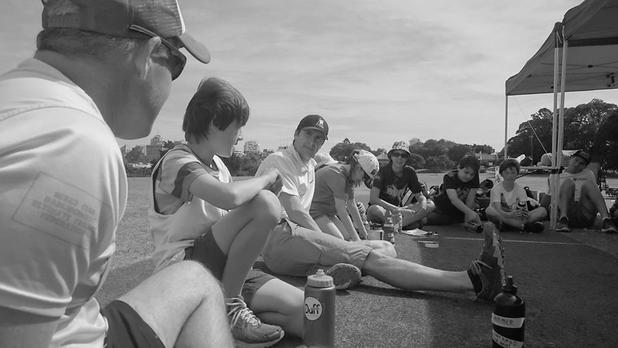|
At a recent school-holiday camp, two intertwined themes developed; leadership and learning. Perhaps more specifically it was possible to make the observation that every person at the camp, old and young, engaged equally with the topics of leadership and learning. A superficial view of a school-holiday camp ecosystem would suggest that there are clear roles; some people are leaders, and some people are learners. Typically, the adults or organisers are the leaders; sometimes these people are even assumptively labelled ‘Leaders’. The corresponding norm is that any young person attending the camp is therefore a learner, those who are there to learn - and possibly be taken off their parent’s hands for a few hours. This view of a holiday camp suggests that every person attending the camp performs an exclusive role; they will either organise, coach, teach, direct and lead, or they will follow, observe, absorb, experience and learn. There is little overlap. One role is active and creative, the other is passive and reactive - leaders and learners. This is perhaps the typical superficial view of a school-holiday camp. Upon initial inspection of the recent sport and leadership camp, it would be possible to make this common delineation. There were adult administrators, some organisers, a head coach and other experienced leaders and experts. These individuals set the schedule, designed the activities, instigated the formal discussions and cut up the oranges. There were also a large group of attendees who had decided, with their parents, to spend their school-holiday time at the camp. These individuals arrived with little idea of what activities were planned, which concepts would be explored and how the day would flow. Clear leaders and learners. The experience at the camp, however, seemed to illuminate a much more complex blend of roles. Certainly, much of the official program was driven by the adult organisers, and many of the young people learnt a lot. The interesting element was that the volume of learning completed by the adults at the camp was significant. And, really importantly, the demonstrations of leadership by the young people present where consistent and impressive. The adults at the camp learned about fun, creativity, youthful language, living in the present moment, resilience, teaching, and the uncompromised approach to learning that is inherent in the world-view of many young people. The young people who attended the camp demonstrated their ability to give direction, offer assistance, advocate for others, negotiate and mediate, communicate effectively and develop experiences that provided enjoyment and learning opportunities for others. During a lunch break, as adults and young people rested in the shade, a group of young leaders developed a new game and invited other people to participate - creativity and leadership in action. The reflection from the camp clearly showed that there is a limited difference between all people regarding their interaction with leadership and learning. It was possible for every person present to decide to learn something new, just as it was possible for every individual at the camp to take the opportunity to be a leader in their world - to advocate for, mediate between and enable the people around them to set and pursue their goals. Leadership and learning are the province of all people, regardless of their specific role … or how far they can throw a Frisbee. Kim (Coach): Hey, have you ever played chopsticks?
Ewan (Young person): Yeah, kind of. *Ewan wins the game in two moves, twice* Kim (Coach): Did you see that Al? Al (Young person): Yeah, you never play chopsticks against Ewan. Kim (Coach): Thanks for the lesson boys.
3 Comments
|
AuthorHigh school teacher Archives
September 2023
CategoriesThemes |


 RSS Feed
RSS Feed
